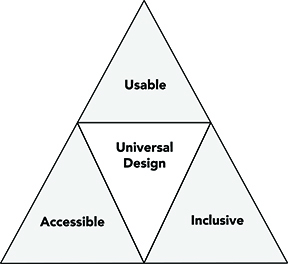AccessCyberlearning
About AccessCyberlearning
AccessCyberlearning works with current and future cyberlearning researchers, technology developers, and instructors to
Knowledge Base
The DO-IT Knowledge Base currently contains over 800 Case Studies, Promising Practices, and Q&As regarding accessibility of technology, college, graduate school, and careers for individuals with disabilities. To learn how you can contribute an article, email doit@uw.edu.
Resources
AccessCyberlearning shares resources for students, educators, and others interested in creating more accessible distance learning programs and increasing the participation of people with disabilities in online learning opportunities.
Rights and Responsibilities
Some postsecondary institutions, including their online learning programs, have faced legal action in the form of resolutions or lawsuits related to the accessibility of IT and online learning to students with disabilities. The following pages provide information that can help institutions apply lessons learned to their own accessibility efforts.
Accommodations
Increasing access to more students is often a reason given for providing instruction in a distance learning format. However, these "access" arguments usually focus on people separated by distance and time and do not always include consideration of students with disabilities.
20 Tips for Teaching an Accessible Online Course

Captioning Lecture Capture Videos: A Promising Teaching Practice
Students and educators show how captioning videos in a lecture capture application helps everyone gain knowledge.
Accessibility Training for Online Educators
Accessible Distance Learning
Motivations
Distance learning designers make courses accessible to students with disabilities: